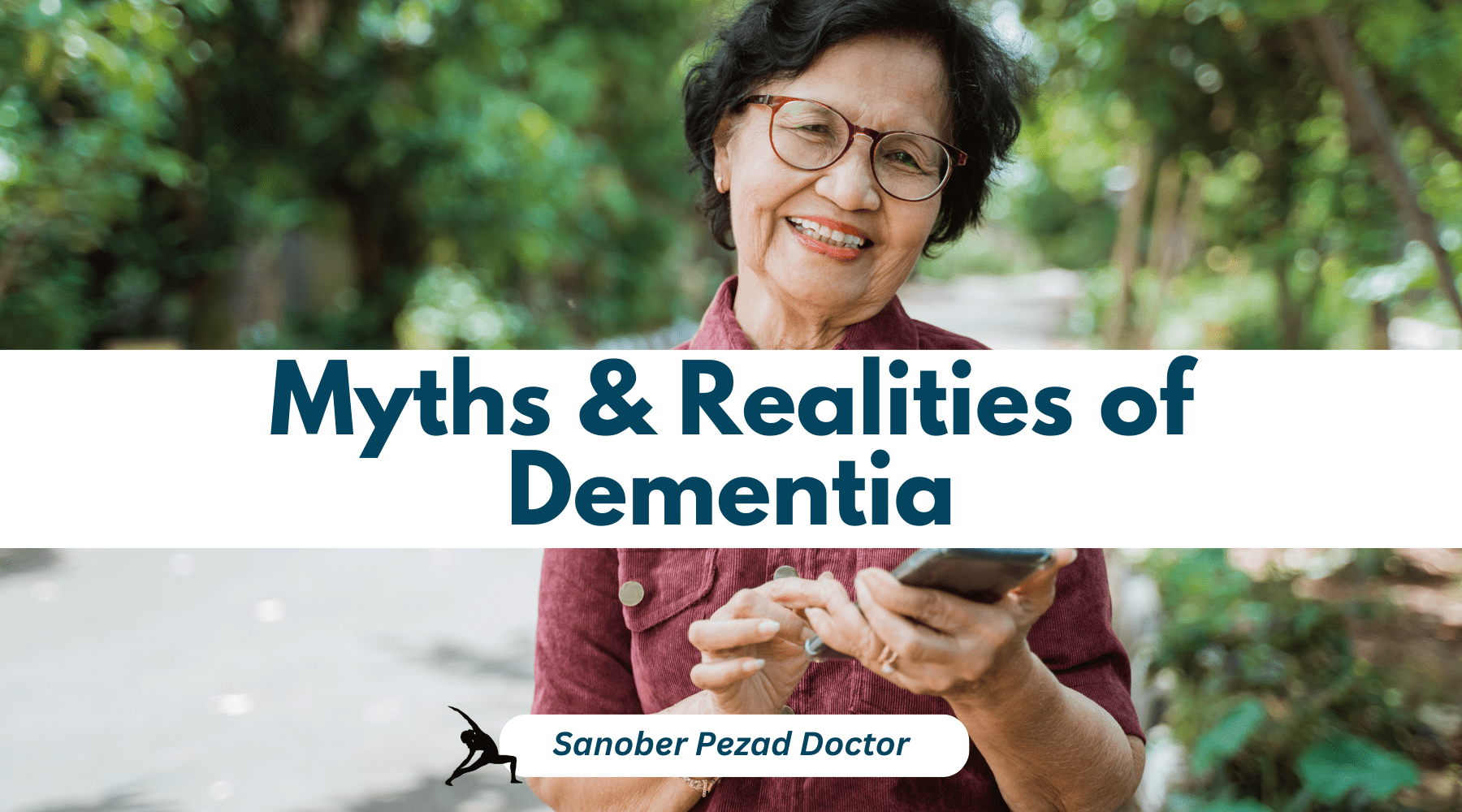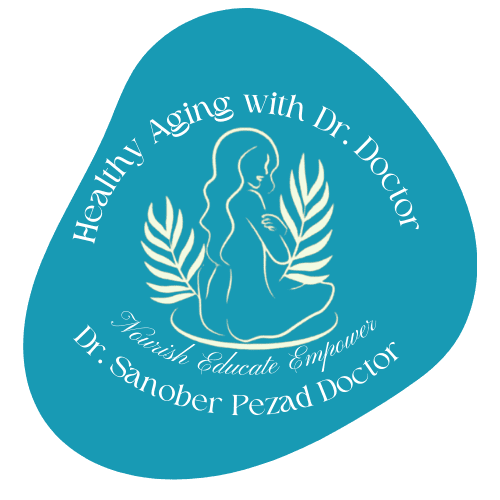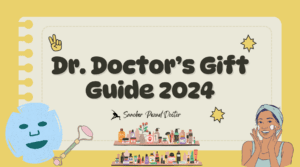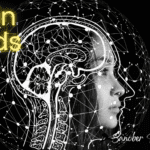Uncovering the Early Signs of Dementia – What You Need to Know!

Off late, I have noticed a form of reluctance within the general public to visit a doctor once they begin to notice signs or symptoms of dementia. Alzheimer’s disease has been named the ‘Epidemic of the 21st Century’ for a reason.
Both, the fear and stigma associated with dementia result in a delay in getting treatment. This delay in turn can prevent getting relief from the symptoms on time. The 2006 Harris Interactive Poll of 539 Caregivers who were currently caring for a parent or spouse with Alzheimer’s found:
1. Patients typically had Alzheimer’s symptoms for two years and saw two doctors before getting diagnosed with Alzheimer’s.
2. Caregivers’ concern about Alzheimer’s stigma delayed diagnosis by up to six years.
Similarly, in a national poll commissioned by the Alzheimer Society of Canada, Ipsos- Reid polled 1,000 Canadians in 2002 and found 81 percent of Canadians nationwide responded affirmatively to the question: “I think people would look at me or treat me differently if I were diagnosed with Alzheimer’s disease.”
My goal in this series of articles on holistic health is to help you understand the difference between age-related memory loss and dementia and what to do if you or your loved one has signs of Alzheimer’s disease.
Before we proceed, I want you to take a little quiz so that you can assess your understanding of this topic yourself.
In case you are not sure what I mean when I use the term dementia. Dementia is a general term for loss of memory, language, problem-solving, and other thinking abilities that are severe enough to interfere with daily life. So dementia is a symptom while Alzheimer’s is one of the diseases that manifest dementia and in fact, it is the most common cause of dementia.
Dementia Self Assessment
1. Having a “little touch of dementia” is a normal part of aging. True/ False?
2. If you have memory loss, that means you have Alzheimer’s disease or dementia. True/ False?
3. If Alzheimer’s disease runs in your family, genetic testing will tell you whether you will get Alzheimer’s disease, too. True/ False?
4. There’s no point in getting diagnosed, because dementia is not curable or treatable. It will just upset my family and me, so there is no reason to do it. True/ False?
5. You don’t need a complete set of diagnostic tests to know if you have Alzheimer’s disease. You can just try a medication for memory loss – if it works, you know. True/False
This was simply to get you to start thinking. I’ll share the answers towards the end of the article but you will know them yourself after you go through the article in its entirety.
Let’s start by debunking some common misconceptions and look at the differences between Alzheimer’s and typical aging.
DEMENTIA MYTH No. 1
Having a “little touch of dementia” is a normal part of aging.
The REALITY is – Our brains age right along with the rest of our bodies, and our abilities naturally change with age. But this aging process is different from the disease process that accompanies a diagnosis of Alzheimer’s.
For many years, we thought that aging included a list of changes, and we believed that having at least some of those changes was inevitable. We considered some of that memory loss as part of the natural aging process. But now we know that they are actually symptoms of a number of diseases, the most common & important one being Alzheimer’s disease.
Alzheimer’s is a disease of the brain where brain cells get progressively destroyed. This then leads to problems with memory, thinking, and behavior. In the early stages of Alzheimer’s, the affected person may experience memory impairment, lapses of judgment, and subtle changes in personality. As the disorder progresses, new areas of the brain are affected. Memory and language problems worsen, as do movement and perception. There may be disorientation and personality changes.
DEMENTIA MYTH No. 2
If I have memory loss that means I have Alzheimer’s disease or dementia.
The REALITY is – Most people who have memory loss do not have Alzheimer’s disease. There are many other diseases that can have memory loss as a symptom. So be sure to consult a physician to make a thorough diagnosis.
There are a number of risk factors for dementia, but most of them will not predict whether or not you will develop Alzheimer’s disease or other related dementia. However, you can benefit from knowing the risks. Once you know the risks, you will be able to make changes to your lifestyle that may positively affect your brain health.
DEMENTIA MYTH No. 3
If Alzheimer’s disease runs in your family, genetic testing will tell you whether you will get Alzheimer’s disease too.
The REALITY is – If a close family member has Alzheimer’s disease, there is an increased risk of others in the immediate family developing the disease, too. But there are other important risk factors as well. Other than the rare exception of younger-onset Alzheimer’s disease (less than 10%), there is currently NO genetic test that will tell you for certain whether you will get Alzheimer’s.
Scientists have discovered a gene that is linked to a greater risk of developing late-onset Alzheimer’s. That’s the most common form of the disease. It shows symptoms after the age of 65 and is generally associated with old age.
If you are considering genetic testing, be sure to discuss the idea with your doctor and a genetic counselor.
Another important association that I want you to know is the Heart-brain connection.
There is scientific evidence about dementia that links brain health to heart health. Your brain is nourished by one of your body’s richest networks of blood vessels. The risk of developing Alzheimer’s or vascular dementia appears to be increased by conditions that damage the heart or blood vessels. These include high blood pressure, heart disease, stroke, diabetes, and high cholesterol.
Hence, it is very important to work with your doctor to monitor heart health and treat any problems that may arise right from the very beginning.
DEMENTIA MYTH No. 4
There’s no point in getting diagnosed because dementia is not curable or treatable. It will just upset my family and me, so why do it?
The REALITY is that – There are a number of very good reasons to pursue a diagnosis. Let’s talk a look at them now.
Once the person with symptoms sees the doctor, they often discover that they actually don’t have dementia at all, but have another illness. Some of the illnesses that can cause memory problems are treatable and can be reversed. You might be surprised to know but memory loss can be seen in thyroid problems or conditions like depression.
Other illnesses that can cause memory problems can be life-threatening if not detected and treated promptly – like heart problems or high blood pressure that has caused mini-strokes. These need to be diagnosed and treated right away to avoid even more serious damage.
It’s important not to ignore any changes or to assume that it is Alzheimer’s disease.
Now your doctor will most certainly be able to determine if your loved one has dementia, but it may be difficult to identify the exact cause. There is no single test that proves that a person has Alzheimer’s; it is actually a set of tests that need to be done. It may take several days or weeks to complete the tests, have a physician interpret them, and be given a diagnosis.
But there are some simple markers and signs that you can help assess to detect the onset of Alzheimer’s early. In the coming video next week I will share the 10 warning signs of Alzheimer’s disease.
DEMENTIA MYTH NO. 5
There’s no point in getting diagnosed because dementia is not curable or treatable. It will just upset my family and me, so why do it?
The REALITY is that – There are a number of very good reasons to pursue a diagnosis. Let’s talk a look at them now.
Once the person with symptoms sees the doctor, they often discover that they actually don’t have dementia at all, but have another illness. Some of the illnesses that can cause memory problems are treatable and can be reversed – like depression or thyroid problems.
Other illnesses that can cause memory problems can be life-threatening if not detected and treated promptly – like heart problems or high blood pressure that has caused mini-strokes. These need to be diagnosed and treated right away to avoid even more serious damage. It’s important not to ignore changes or to assume that it is Alzheimer’s.
Although physicians can almost always determine if a person has dementia, it may be difficult to identify the exact cause. There is no single test that proves that a person has Alzheimer’s; it is actually a set of tests that need to be done. It may take several days or weeks to complete the tests, have a physician interpret them, and be given a diagnosis.
So before I leave you today, I will quickly go through the quiz that we took earlier, though I am sure you already know the answers by now.
Number 1: Having a “little touch of dementia” is a normal part of aging.
That is False: As we age, many of our physical capabilities including memory diminish. But having a harder time remembering some things is very different from having a form of dementia like Alzheimer’s disease.
Number 2: If I have memory loss, that means I have Alzheimer’s disease or dementia.
This is False, too. What it means is that you have a symptom, and you should see your doctor to get a thorough assessment and diagnosis. Please do NOT self-diagnose or make assumptions.
Number 3: If Alzheimer’s disease runs in your family, genetic testing will tell you whether you will get Alzheimer’s disease too.
Not true. Having a parent or sibling with Alzheimer’s disease does somewhat increase someone’s risk of developing the disease, but genetics is not the only risk factor & a very minor one indeed.
Number 4: There’s no point in getting diagnosed because dementia is not curable or treatable. It will just upset my family and me, so why do it?
This is False as well. Early diagnosis is the only way to get early treatment for any diagnosis. the most important step is to DETECT IT EARLY.
Number 5: You don’t need a complete set of diagnostic tests to know if you have Alzheimer’s disease. You can just try a medication for memory loss – if it works, you know.
That is also False. Early treatment is best, but you have to know what you’re treating. There are many things that can cause memory loss and it is important to be thoroughly assessed.
THE VERDICT
There’s no doubt about how important your brain health is to your everyday life. By being proactive & knowing what to look out for, you can prevent a serious condition from setting in your loved ones & yourself.
If you are struggling with brain fog, depression, anxiety, or other brain health problems and feel like you’ve reached a plateau with your healing, check out our telehealth integrative health coaching consultation.
In my telehealth integrative health coaching clinic, we go the extra mile to uncover all areas of your health that can be contributing to your brain health problems.
Even though brain health problems can be overwhelming, we aim to walk with you on your journey to better health, naturally.
As one of the only few Holistic skin and health coaches in the world, we provide online coaching for people around the globe.
Till then,
Continue to glow, thrive and shine as always.
Sending lots of healthy and happy wishes your way. ?
P.S.- If you like what I share, consider Subscribing to stay connected. I do NOT spam. Promise! ?
Also, please leave a comment and share the article with your loved ones. Sharing is Caring!
Feel free to ask a question or leave a suggestion as well. I am always open to learning. ?





